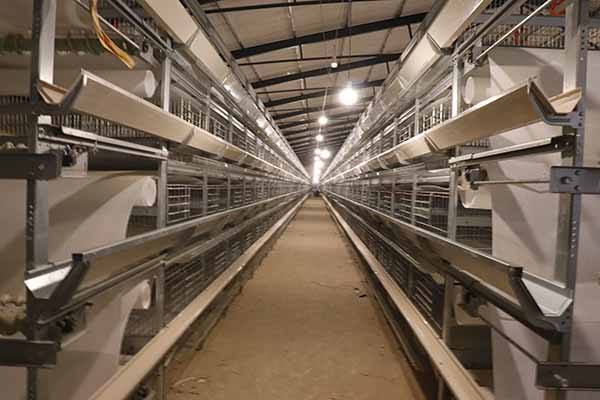Which Automated Chicken Farm Equipment is Better in Tanzania
Time : 2025-06-29
Automated chicken farm equipment has revolutionized the poultry industry, bringing efficiency and precision to the farming process. In Tanzania, a country known for its rich agricultural heritage, choosing the right automated equipment can significantly impact farm productivity and profitability. This article will explore the various automated chicken farm equipment available in Tanzania and help farmers make an informed decision about which option is best suited to their needs.
Introduction to Automated Chicken Farm Equipment
Automated chicken farm equipment is designed to streamline various processes on a chicken farm, including feeding, watering, ventilation, temperature control, egg collection, and waste management. The integration of technology into poultry farming not only reduces labor costs but also improves the health and well-being of the chickens, resulting in higher quality and yield.
Factors to Consider When Choosing Automated Chicken Farm Equipment
Before delving into the specifics of equipment, it’s essential to consider several factors that can influence the choice:
– Farm Size: The size of the farm will determine the scale and complexity of the equipment required.
– Budget: The financial resources available will restrict the options available for purchasing equipment.
– Climate and Environmental Conditions: Different regions may require specific equipment to cope with extreme temperatures or other environmental factors.
– Purpose: The specific goals of the farm, whether for egg production, meat production, or both, will influence the type of equipment needed.
Top Automated Chicken Farm Equipment in Tanzania
1. Automated Feeders
Automated feeders are crucial for maintaining consistent feeding schedules, which can greatly impact the health and productivity of the chickens. In Tanzania, some of the most popular automated feeders include:
– Continuous Feeding Systems: These systems dispense feed at predetermined intervals, ensuring that the chickens have access to food whenever they need it.
– Smart Feeding Systems: Using sensors and IoT technology, these feeders can adjust feed quantities based on the individual needs of each chicken, further optimizing feed efficiency.
2. Automated Waterers
Water is as important as feed in poultry farming, and automated waterers provide a constant supply while minimizing waste:
– Nipple Drinkers: These are the most common type of automated waterers in Tanzania, providing a consistent water flow to the chickens.
– Tubular Drinkers: Suitable for larger flocks, tubular drinkers are designed to deliver water through a network of connected pipes.
3. Ventilation and Temperature Control Systems
Proper ventilation and temperature control are essential for maintaining a healthy environment for chickens:
– Automatic Ventilation Systems: These systems adjust the airflow and temperature within the chicken house based on internal and external conditions.
– Heating and Cooling Units: For regions with extreme temperatures, these units can be crucial in maintaining optimal living conditions for the chickens.
4. Egg Collection Systems
Automated egg collection systems reduce manual labor and minimize the risk of broken eggs:
– Egg Collection Conveyors: These systems use conveyors to transport eggs from the laying areas to collection points.
– Egg Trays: Automatically collecting eggs in trays that are then moved to a collection point.
5. Waste Management Equipment
Effective waste management is essential for maintaining hygiene and reducing the risk of disease:
– Automatic Waste Removal Systems: These systems can remove waste from the chicken house, either manually or through automated conveyor belts.
– Composting Machines: For farms that aim to recycle waste, composting machines can turn waste into fertile soil.
Conclusion
Choosing the right automated chicken farm equipment in Tanzania requires careful consideration of the farm’s specific needs, budget, and environmental factors. By investing in high-quality, efficient equipment, farmers can enhance their productivity, improve the health and well-being of their chickens, and ensure a sustainable future for their poultry operations.
Tags
, , , , 











